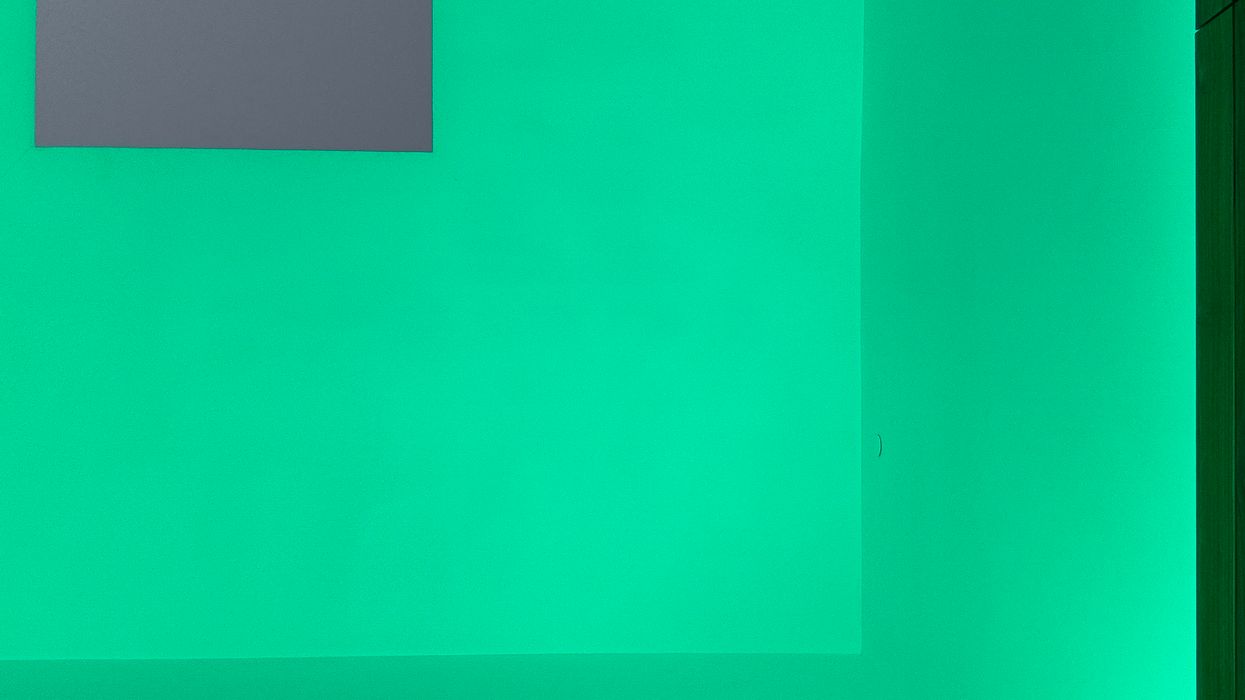A few days ago, I went to see a James Turrell installation on a rooftop in lower Manhattan. If you don’t know his work, Turrell is an American artist whose primary medium is colored light.
This particular installation is an immaculate white room with a perfect, knife-edge square cut through the ceiling, open to the elements. As the color of the room lighting changes, so does the color of the sky above, which appears as a perfect, depthless square of steadily shifting hue. The contrasting effect is hypnotic.
As a small group of us sat on simple wooden benches around the perimeter looking upward, the architect who worked with Turrell on the installation said, “the great thing about this is that you don’t need to know anything beforehand for this to work. You just need to use your eyes.”
You just need to use your eyes.
What our eyes are sufficient for has been on my mind lately, particularly as I’ve been reading Ta-Nehisi Coates’ new book “The Message.”
In it, Coates – known for his lyrical, polemical writing about race, power, and racism – travels to South Carolina, where he meets a teacher fighting a local ban of one of Coates’ earlier books; to Senegal, where he explores his relationship to Africa as a descendant of African slaves; and to Israel, where he spends 10 days chronicling both Palestinian dispossession and Israeli narratives of history.
All three sections explore the dangers of mythmaking and utopian thinking – for everyone, white, Black, Jewish – and the ways in which the powerful everywhere weave elaborate stories to justify the oppression of the powerless.
But the section on Palestine has drawn the most attention and the most ferocious criticism, as many people learned from the controversy surrounding CBS morning anchor Tony Dokoupil's spicy on-air exchange with Coates about it.
It begins at Jerusalem’s Yad Vashem Holocaust memorial and traces a tragic arc from the near extermination of the Jews to the redemptive foundation of an Israel that has inflicted its own violence and dispossession on the Palestinians. For Coates, the occupation of the West Bank echoes the Jim Crow South and Apartheid South Africa.
There is a lot to grapple with in the book, and there have been many critiques – Coates’ decision to recount Jewish massacres of Palestinians without telling any stories of Arab violence or terrorism against Jews; the relative absence of Palestinian voices in a book that itself (rightly) calls for more Palestinian representation in media; the grafting of an American-style racial paradigm of race and power onto Israel’s ethnic and sectarian hierarchies in a way that doesn’t quite fit.
But one particular charge against Coates bothers me: that he leaves out too much context or that he doesn’t have the authority to speak on this issue as a non-expert.
No, Coates is not a historian or a scholar of the Middle East. And no, he doesn’t speak the local languages: In the audio version of the book, his repeated butchering of the words knafeh and Al-Aqsa will drive Arabic speakers up the wall.
But he does have eyes.
When you go to the West Bank – I have been there just once, alone, for a few weeks in 2008 – you are immediately confronted with a striking degree of systemic inequality, a world that does not often make the air in US media: the effectively segregated highways, the shrinking access to land and water that is left to the Palestinians, the checkpoints that may or may not let Palestinians through on any given day.
“Even our mental geography has been shattered,” I remember a photojournalist from Nablus telling me. “If I want to visit my mother in Khalil [the Arabic name for Hebron], I don’t know if it will take me two hours, two days, or if I’ll be able to get there at all.”
It is, very clearly and observably, as Coates writes, “a place where no Palestinian person is ever the equal of any Jewish person, ever.”
There is context, of course. And context is important for many reasons. If we want to solve problems, we have to know how they came to be. If we want to change people’s minds or policies, we have to understand the chain of experiences and decisions that brought them to where they are.
But there are ways in which “context,” or the constant demand for more of it, can become a kind of deliberate diversion, a way of obscuring things rather than clarifying them. What Coates calls “the elevation of factual complexity over self-evident morality.”
If a terrorist group goes on a rampage killing innocent people, you cannot appeal to context to excuse the immorality of their crimes. If one people systematically discriminates against another group of people, dispossessing and destroying them, you cannot simply take refuge in the idea that “it’s complicated.”
Whenever the dignity and security of actual human beings are at stake, the purpose of context should be to illuminate responsibility rather than to obscure it.
There are times when you should just use your eyes.












